Related Research Articles

Lesbian, gay, bisexual, transgender, and queer (LGBTQ) people in Mali face severe legal and societal challenges not experienced by non-LGBTQ residents. According to the 2007 Pew Global Attitudes Project, 98 percent of Malian adults believed that homosexuality is considered something society should not accept, which was the highest rate of non-acceptance in the 45 countries surveyed. The Constitution of Mali has outlawed same-sex marriage since 2023, and the Malian penal code has criminalized homosexuality since 2024.
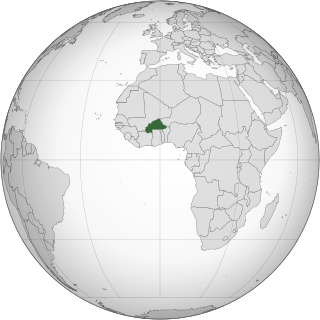
Lesbian, gay, bisexual, transgender, and queer (LGBTQ) people in Burkina Faso face legal issues not experienced by non-LGBTQ citizens. Although same-sex sexual acts are legal for both men and women in Burkina Faso, there is no legal recognition of same-sex marriage or adoption rights.

Lesbian, gay, bisexual, and transgender (LGBTQ) people in the Islamic Emirate of Afghanistan face severe challenges not experienced by non-LGBT residents. Afghan members of the LGBT community are forced to keep their gender identity and sexual orientation secret, in fear of violence and the death penalty. The religious nature of the country has limited any opportunity for public discussion, with any mention of homosexuality and related terms deemed taboo.

Lesbian, gay, bisexual, transgender, and queer (LGBTQ) people in Jamaica face legal and social issues not experienced by heterosexual and gender-conforming people. Consensual sexual intercourse between same-sex partners is legally punishable by up to 10 years of imprisonment in the country.

Lesbian, gay, bisexual, and transgender (LGBT) people in Armenia face legal and social challenges not experienced by non-LGBT residents, due in part to the lack of laws prohibiting discrimination on the grounds of sexual orientation and gender identity and in part to prevailing negative attitudes about LGBT persons throughout society.

Lesbian, gay, bisexual, transgender, and queer (LGBTQ) rights in Argentina rank among the highest in the world. Upon legalising same-sex marriage on 15 July 2010, Argentina became the first country in Latin America, the second in the Americas, and the tenth in the world to do so. Following Argentina's transition to a democracy in 1983, its laws have become more inclusive and accepting of LGBT people, as has public opinion.

Lesbian, gay, bisexual, transgender, and queer (LGBTQ) people in Pakistan face legal and social difficulties and persecution compared to non-LGBTQ persons. Pakistani law prescribes criminal penalties for same-sex sexual acts.
Joël Gustave Nana Ngongang (1982–2015), frequently known as Joel Nana, was a leading African LGBT human rights advocate and HIV/AIDS activist. Nana's career as a human rights advocate spanned numerous African countries, including Nigeria, Senegal and South Africa, in addition to his native Cameroon. He was the Chief Executive Officer of Partners for Rights and Development (Paridev) a boutique consulting firm on human rights, development and health in Africa at the time of his death. Prior to that position, he was the founding Executive Director of the African Men for Sexual Health and Rights (AMSHeR) an African thought and led coalition of LGBT/MSM organizations working to address the vulnerability of MSM to HIV. Mr Nana worked in various national and international organizations, including the Africa Research and Policy Associate at the International Gay and Lesbian Human Rights Commission (IGLHRC), as a Fellow at Behind the Mask, a Johannesburg-based non-profit media organisation publishing a news website concerning gay and lesbian affairs in Africa, he wrote on numerous topics in the area of African LGBT and HIV/AIDS issues and was a frequent media commentator. Nana died on October 15, 2015, after a brief illness.
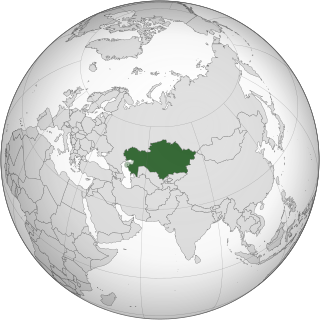
Lesbian, gay, bisexual, and transgender (LGBT) people in Kazakhstan face significant challenges not experienced by non-LGBTQ residents. Both male and female kinds of same-sex sexual activity are legal in Kazakhstan, but same-sex couples and households headed by same-sex couples are not eligible for the same legal protections available to opposite-sex married couples.

Lesbian, gay, bisexual, transgender, and queer (LGBTQ) rights in Angola have seen improvements in the early 21st century. In November 2020, the National Assembly approved a new penal code, which legalised consenting same-sex sexual activity. Additionally, employment discrimination on the basis of sexual orientation has been banned, making Angola one of the few African countries to have such protections for LGBTQ people.

Lesbian, gay, bisexual, transgender, and queer (LGBTQ) people in Nicaragua face legal challenges not experienced by non-LGBTQ residents. Both male and female types of same-sex sexual activity are legal in Nicaragua. Discrimination based on sexual orientation is banned in certain areas, including in employment and access to health services.

Lesbian, gay, bisexual, and transgender (LGBT) people in Honduras face legal challenges not experienced by non-LGBTQ residents. Both male and female types of same-sex sexual activity are legal in Honduras.
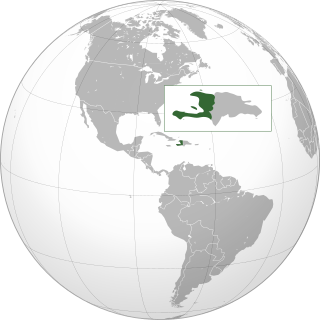
Lesbian, gay, bisexual, and transgender (LGBT) persons in Haiti face social and legal challenges not experienced by non-LGBT residents. Adult, noncommercial and consensual same-sex sexuality is not a criminal offense, but transgender people can be fined for violating a broadly written vagrancy law. Public opinion tends to be opposed to LGBT rights, which is why LGBT people are not protected from discrimination, are not included in hate crime laws, and households headed by same-sex couples do not have any of the legal rights given to married couples.

Lesbian, gay, bisexual, and transgender (LGBTQ) people in Bangladesh face widespread social and legal challenges not experienced by non-LGBT people.
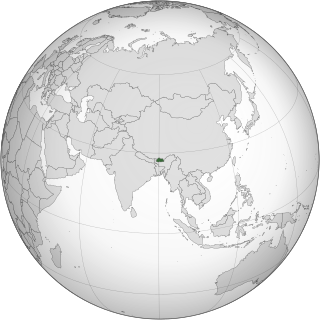
Lesbian, gay, bisexual and transgender (LGBT) people in Bhutan face legal challenges that are not faced by non-LGBTQ people. Bhutan does not provide any anti-discrimination laws for LGBT people, and same-sex unions are not recognised. However, same-sex sexual activity was decriminalised in Bhutan on 17 February 2021.

Lesbian, gay, bisexual, transgender, and queer (LGBTQ) people in El Salvador face considerable legal and social challenges not experienced by non-LGBTQ Salvadorans. While same-sex sexual activity between all genders is legal in the country, same-sex marriage is not recognized; thus, same-sex couples—and households headed by same-sex couples—are not eligible for the same legal benefits provided to heterosexual married couples.
The initialism LGBTQ is used to refer collectively to lesbian, gay, bisexual, transgender and queer (LGBTQ) people and members of the specific group and to the community (subculture) that surrounds them. This can include rights advocates, artists, authors, etc.

Lesbian, gay, bisexual, and transgender (LGBT) people in Guatemala face legal challenges not experienced by non-LGBTQ residents. Both male and female forms of same-sex sexual activity are legal in Guatemala.
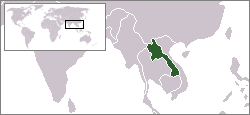
Lesbian, gay, bisexual and transgender (LGBT) rights in Laos go unreported and unnoticed. While homosexuality is legal in Laos, it is very difficult to assess the current state of acceptance and violence that LGBTQ people face because of government interference. Numerous claims have suggested that Laos is one of the most tolerant communist states. Despite such claims, discrimination still exists. Laos provides no anti-discrimination protections for LGBT people, nor does it prohibit hate crimes based on sexual orientation and gender identity. Households headed by same-sex couples are not eligible for any of the rights that opposite-sex married couples enjoy, as neither same-sex marriage nor civil unions are legal.
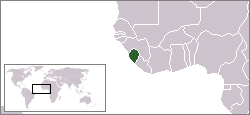
Lesbian, gay, bisexual, and transgender (LGBT) people in Sierra Leone face legal challenges not experienced by non-LGBTQ residents. Male same-sex sexual activity is illegal in Sierra Leone and carries a possible penalty of life imprisonment, although this law is seldom enforced.
References
- ↑ "Where is it illegal to be gay?". BBC News. 10 February 2014. Retrieved 23 February 2014.
- ↑ Aguilar, Indyra (9 September 2014). "IMPUNITY AND VIOLATION OF JUDICIAL GUARANTEES OF THE HUMAN RIGHTS OF LESBIAN, GAY, BISEXUALS, TRANSGENDER AND INTERSEX PERSONS IN CRIMINAL CASES IN HONDURAS" (PDF). cattrachas.org. Archived from the original (PDF) on 7 November 2019. Retrieved 6 November 2019.
- ↑ Manuel Fernandez-Alemany & Stephen O. Murray, "Heterogender Homosexuality in Honduras" (Lincoln, NE: Writers Club Press, 2002), ISBN 0-595-22681-7
- ↑ Tucker, Duncan (5 April 2016). "Rainbow warriors: Attacks and killings of LGBT activists in Honduras". Index on Censorship. 45 (1): 72–75. doi: 10.1177/0306422016643026 . ISSN 0306-4220.
- ↑ Cattrachas (2018). "Informe Sobre Muertes Violentas de la comunidad LGTTBI" (PDF). cattrachas.org. Archived from the original (PDF) on 7 November 2019. Retrieved 5 November 2019.
- ↑ Pizzi, Julia (8 October 2006). "Shadow report on lesbian, gay, bisexual and transgender rights in Honduras" (PDF). cattrachas.org. Archived from the original (PDF) on 7 November 2019. Retrieved 6 November 2019.
- ↑ García Trujillo, Odalys; Paredes, Mayté; Sierra, Manuel (July 1998). "VIH/SIDA: Análisis de la Evolución de la Epidemia en Honduras" (PDF). Universidad de Costa Rica.
